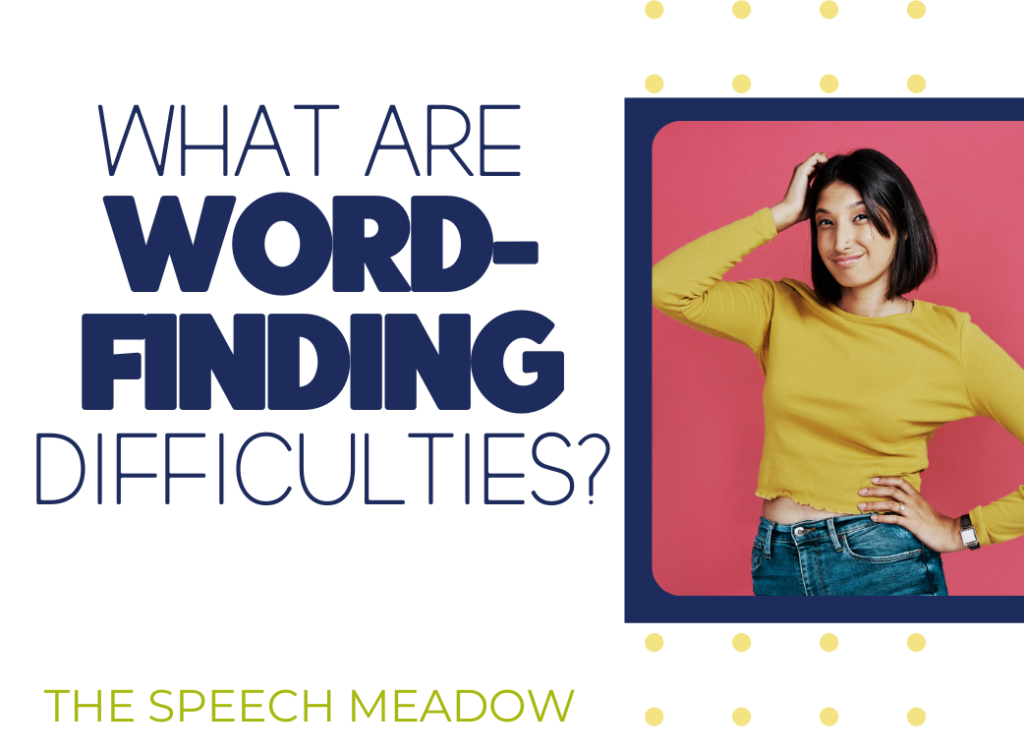Word-finding difficulties (aka word retrieval problems) is when a person knows a word but can’t access it at that moment, or they mean one word but say a different word. People often use the phrase, “it’s on the tip of my tongue,” to describe having trouble retrieving a specific word. You also may hear “slip of the tongue” when a person meant to say one word, but a different word came out 
Now everyone has incidents of having difficulties finding words when speaking. For some people word retrieval difficulties can cause a significant impact on their lives. Word retrieval plays a vital role in language processing and can predict reading problems. It is estimated that approximately 25% of children diagnosed with language impairments have word retrieval difficulties. Approximately 50% of children diagnosed with a learning disability had word-finding difficulties. Children with developmental language disorder (DLD), childhood apraxia of speech (CAS), or children with brain trauma can show word-finding difficulties.
Children with word-finding difficulties give less accurate definitions of object names compared to a control group. When describing objects, these children don’t describe objects in as much detail. They depend more on what a thing looks like than children without word-finding difficulties. In general, children have problems retrieving words in “sparse neighbourhoods.” Words that children are exposed to, and use often tend to occur in “dense neighbourhoods” and are more easily retrieved.
What does it look like?
The child using definitions to help fill in the word that they can’t find (e.g., “You know that thing you use to lock doors.”). Using an increased amount of non-specific language (e.g. that, this, there, thing, stuff) can be word-finding difficulties.. E.g., “I need that thing over there.” A child using a word that sounds similar to the word they were trying to say, for example, saying blue for glue.
If a child is using more filler words (e.g., um, ah) to “buy time” can indicate word retrieval difficulties. E.g., “Hi, um um ah Jane.” Finally using an increased number of pauses so that they may retrieve the word. E.g., I want … the … red dress.”
What can I do?
Give the student extra time to answer questions. If they are struggling, encourage them to tell you about the word (what does it start with, describe the object or person). Get the child to act it out. Explicitly teach vocabulary related to what they are learning. Re-teach the information more than once. Read/look at books related to topics at school or topics of interest.
If you are interested in a parent/teacher friendly handout click here. Look out for more blog posts on word-finding difficulties.

One Comment